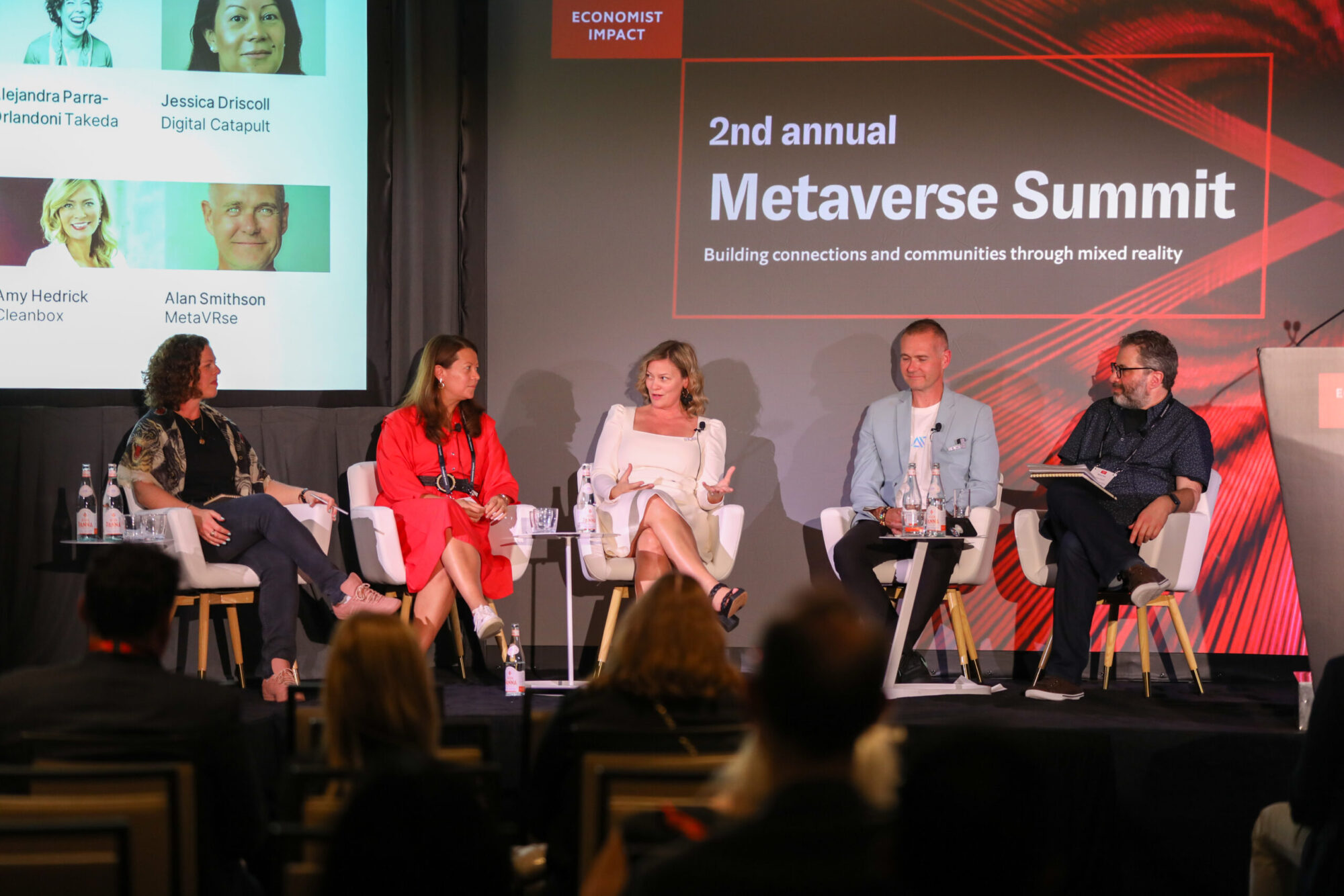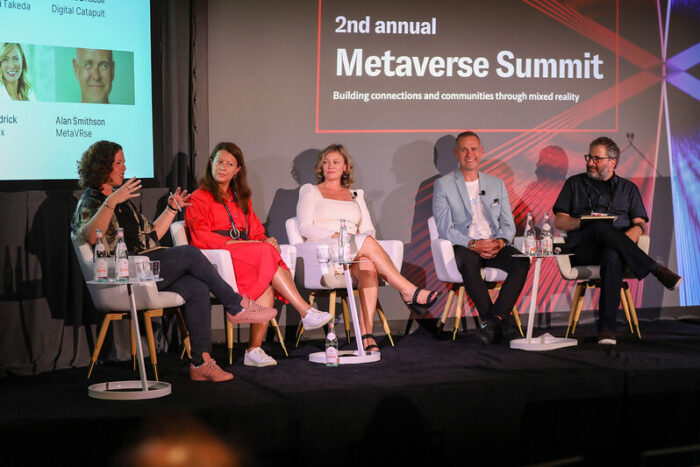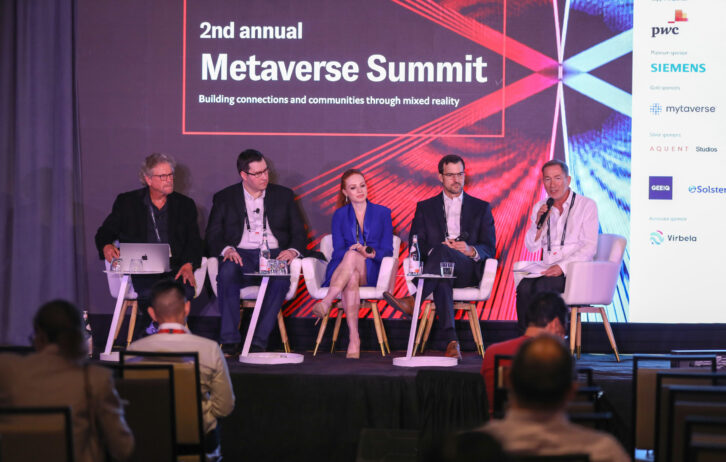The metaverse isn’t dead, it’s just growing up.
Posted 30 Oct 2023
Rumours of the death of the Metaverse have been somewhat exaggerated judging by the attendance and the mood at last month’s Economist Metaverse Summit in Los Angeles. While empty studio lots and protesting film actors may have formed a gloomy backdrop, the technology vendors and digital creatives among the conference attendees were much more buoyant.
It was a huge pleasure to speak at the recent Economist Metaverse Summit in Los Angeles. There was a really buoyant mood for immersive technology development and applications with a sense that, post-pandemic, this community is thinking big about how to build a world we want to live in, despite considering the macro view where geopolitical challenges may make it difficult for clients to make meaningful long term decisions about infrastructure or innovation. This highlighted the fact that leadership matters more than ever, especially in light of geopolitical trends and the ever-accelerating speed of innovation.
The commitment to positive impact and building responsibly and establishing trust was evident, and there is a clear appetite for seeing and hearing more diverse perspectives in the metaverse to help lay a better foundation for the future.
In terms of brands in the metaverse, co-creation was a key theme. The discussion about NFTs in the metaverse has moved on beyond the visual appeal of an asset, perhaps more to value, and to new questions around what kinds of social clout and social currency might make NFTs in the metaverse worthwhile. The forward momentum of the metaverse concept is clearly no longer driven by inflated cryptocurrency laundering fantasies.
Instead there was a new term doing the rounds, ‘Metavergence’ – the convergence of technologies like AI, immersive, 5G, IoT and blockchain – which led to experts highlighting why interoperability and onboarding will be so important when thinking about industrial or consumer metaverses, and the need for utility.
There were some fantastic use cases spanning every sector in every corner of both private and public markets, with some of the issues of usability (such as a frictionless user experience) being addressed as important factors for adoption. It was evident that user-centred design couldn’t be more relevant.
In the industrial metaverse there were key learnings around preparing metaverse companies to plan for scalable success, get buy-in from multiple business functions, understand the user context and be interoperable, as this will enable scaling of workplace metaverse applications.
Interestingly, Nvidia sees Digital Twins as avatars and the training ground for AI models to optimise physical world operations, and shared some interesting use cases to demonstrate this. Digital Catapult is currently experimenting with the Nvidia Omniverse platform across our advanced media production capabilities, you can register interest via the link to learn more about the latest developments in this cutting edge space!
In summary, Interoperability, user experience, scalability, responsible creation and adoption, and the ‘Metavergence’ are continuing to demonstrate interesting and novel applications. Clearly the metaverse isn’t dead, it’s just growing up…!
You can watch the discussion chaired by Digital Catapult CEO Jeremy Silver, “Moving at the speed of innovation: how can policy keep up?” on YouTube.


Digital Catapult newsletter
Receive articles and insights like this delivered directly to your inbox
Subscribe now